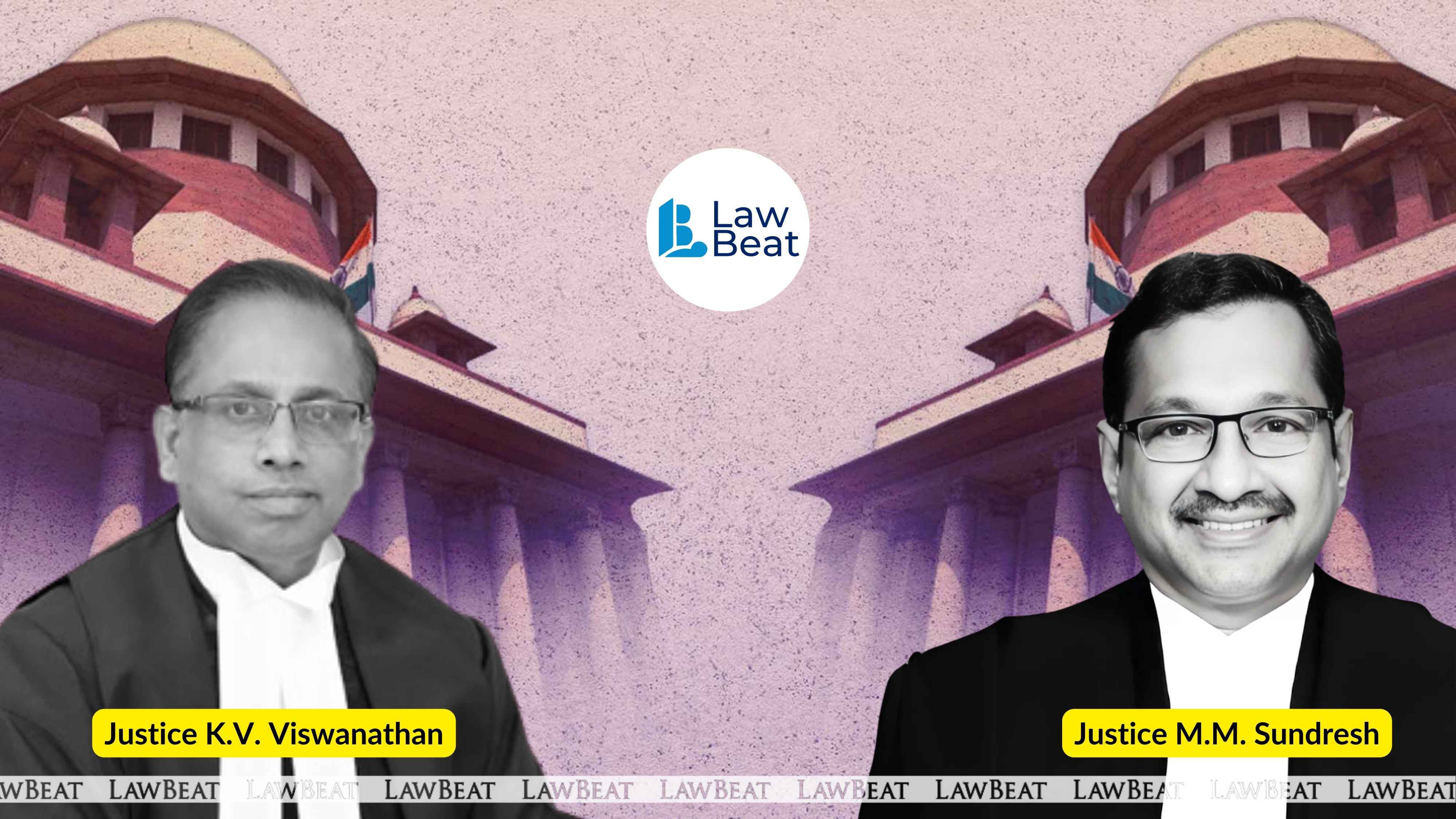'HC Can't Replace Trial Court's Plausible View in Acquittal' : SC Frees 1978 Murder Accused

Court set aside the Allahabad High Court’s judgment convicting two men in a 1978 murder case
The Supreme Court has said that the appellate court, while exercising its power under Section 378 of the Code of Criminal Procedure, 1973 as it then was, should be slow in reversing an order of acquittal.
Court emphasised that a court of appeal would not substitute the view of the trial court, especially when the views expressed by the trial court are plausible, since it is a case of double presumption of innocence that would enure to the benefit of an acquitted person.
A bench of Justices M M Sundresh and K V Vishwanathan allowed an appeal filed by Vindhyachal and another person and set aside the Allahabad High Court's judgment, which had reversed their acquittal by the trial court in a 1978 murder case.
By the impugned judgment, the appellants were convicted by the high court for offences punishable under Sections 302/34, 307/34, and 148 of the Indian Penal Code.
The trial court, on appreciating the evidence placed before it, had extended the benefit of doubt to the appellants and acquitted them.
The prosecution's case was that in 1977, accused no. 1 and other accused were witnessing a dance that bordered on obscenity, which was objected to by the prosecution witnesses' side. This led to a fight between the two groups.
Thereafter, due to previous enmity, the accused persons came to the complainant’s field and started attacking him and others. The FIR registered in July 1978 was preceded by an earlier incident, which had also resulted in an FIR filed against the accused persons in March 1978.
The trial court disbelieved the prosecution’s evidence and rendered an order of acquittal. Regarding the evidence of PW-4, an alleged injured eyewitness, the trial court held that his earlier statement contradicted the statement of PW-3, which resulted in the First Information Report.
Material discrepancies between the oral evidence given by the eyewitnesses and the medical evidence were taken note of by the trial court. Even the complainant's statements as PW-3—at the time of registering the First Information Report and later before the trial court—were found to be contradictory.
The trial court also found that although the FIR was alleged to have been recorded on July 3, 1978, the officer concerned had signed it the next day, raising strong suspicion that it may have been ante-dated.
The evidence of PW-4 to PW-6 was eschewed by the trial court, not only because they were interested witnesses but also due to material contradictions between their prior statements and their subsequent statements before the trial court.
The trial court held that the prosecution had not proved the charges beyond reasonable doubt and acquitted the accused.
The high court, however, reversed the trial court's judgment, holding that the discrepancies, though present, were minor in nature and did not vitiate the prosecution’s case.
The apex court found considerable force in the submissions made by the counsel appearing for the appellants. It noted that since the trial court, which had the benefit of seeing the witnesses, had rendered an order of acquittal, the appellate court, while exercising its power under Section 378 of the Code of Criminal Procedure, 1973 as it then was, should be slow in reversing an acquittal. In other words, a court of appeal shall not substitute the view of the trial court, especially when the views expressed by the trial court are plausible. It is a case of double presumption of innocence that would enure to the benefit of an acquitted person.
"After going through the judgment of the Trial Court, we certainly find that it is a plausible view that has been expressed by it. The High Court has replaced that view with its own reasoning, which is not permissible in the eye of law," the bench said.
The court also took note of the fact that the case involved Sections 34 and 148 of the IPC, and therefore, there was always a possibility of the prosecution adding more accused.
"Thus, considering the discussion, we set aside the impugned judgment, by restoring the judgment of acquittal rendered by the Trial Court," the bench said, ordering the immediate release of the appellants unless required in any other case.
Case Title: Vindhyachal & Anr Vs The State of Uttar Pradesh & Ors
